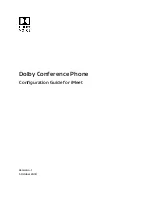
2 - 34
Description varix 200/varix 14 (DECT)
2 Planning a cordless communications network
2.9.6
Why carry out propagation time measurements?
DECT is a rather propagation-time-critical time-multiplex transmission method. It specifies 10
frequencies, on each of which 12 calls with 32 kbit/s each can be transmitted in time-multi-
plex mode. In addition, it provides for embedded channels with 2 kbit/s which are used for
signalling between the FP and PPs. The remaining bits in each frame are filler and synchroni-
zation bits.
Every FP transmits a frame structure of this type and expects to receive the answers from the
FP in the same time framework. All FPs in a cordless network must operate synchronously. This
enables one PP to hold a connection to FP A on slot 1 and a second PP to hold a connection
to FP B on slot 2. This strict synchronisation is also essential for hand-over to work correctly (a
PP switches an ongoing connection to a different FP).
ETSI specifies a maximum time jitter of 2 µs.
The DeTeWe FPs receive a regular synchronization clock impulse from the central PABX sys-
tem via the UP0 interface. They keep pace autonomously between these impulses.
However, since the propagation times due to the cables are not negligible, the FPs would
normally only be fully synchronized if all cables were to be of equal lengths. Different cable
lengths, which are always found in practical applications, will lead to signal propagation
times differing by far more than the permitted 2 µs. This means that the FPs would no longer
be synchronized
.
In order to be able to compensate for this, the propagation times are meas-
ured for all cables leading to FPs, and the propagation time delays are stored in the PABX.
Frame 10 ms
Upstream
Downstream
Gap
Sync-Bits
Data
















































